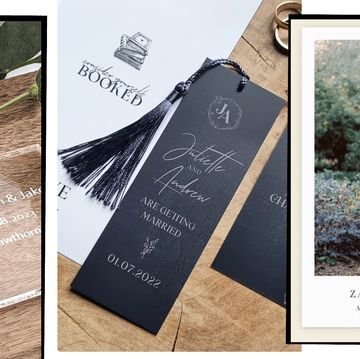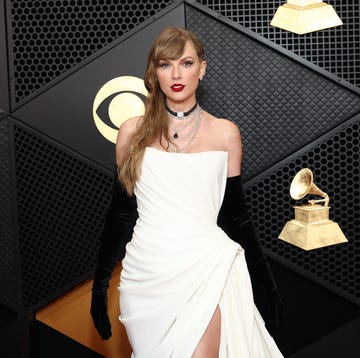Anxiety and depression affects one in five people, with women being 70% more likely to experience it during their lifetime than men, according to a YouGov survey conducted for Mental Health Awareness Week and The National Institute for Mental Health respectively. Read more about this modern epidemic in the March issue of ELLE, on sale now.
Here, actress and writer Laura Darrall, 29, explains the real feelings and experiences behind the statistics.
When I was nineteen I suffered from horrendous OCD, intrusive thoughts inside my head telling me that if I didn't do or say or think certain things then those that I loved would die and that it would all be my fault. Since that first attack, I have suffered on and off from anxiety, depression, panic attacks and OCD.
The very first time it took hold of me felt like a punch to the gut, my body was flooded with cold and I felt completely detached from my surroundings and the people I was with. The sound stopped in my ears and my heart felt like it was trying to win a race and burst out of my chest to reach the finish line. For something that is centred in the neurological system, it's amazing how the symptoms can manifest physically. It was then that the thoughts began, the endless stream of what ifs, catastrophic situations in which I would hurt those I loved most, or they would die if I didn't do or say or think a certain thing.
It felt like falling down a well except there was no landing. I was spinning round and round in a never-ending downward spiral. 10 years on and off of similar episodes, some lighter than this, some much much worse and only when I hit rock bottom did I get the help I needed. It seems to be a trait with mental illness that it takes a crisis to make us seek help when really early intervention could save so much pain.
It has affected my family, my life and my relationships. I say I 'have suffered from' not as a victim but as a strong, confident young woman who never understood mental illness until she had it and suffered.You wouldn't know it if you met me. I have an abrasively perky disposition and a positive outlook on life.
I say 'have suffered from' because it is suffering, it is crippling and it is exhausting. I had seen it in family when I was growing up, but I never truly understood it until it felt like my own brain was attacking me.
Because that is what mental illness feels like, it feels like your brain, the thing inside of you which up until now you completely associated with your sense of identity and self, is on fire and on the attack and will not rest until you are flattened. It feels like someone has placed a blanket of lead over your head that no matter how hard you try you cannot shake it.
What is so hard about mental illness is that, unlike when you have broken your leg and you can clearly see all the 'broken' bits, when your brain is broken it is so difficult to distinguish between what is you, your personality and what is the illness. This is one of the many reasons mental health is such a taboo subject and people feel uncomfortable talking about it because they don't want to be thought of as crazy.
When your mental health isn't working properly or at its best, the same as if you broke your leg, it needs fixing and resetting. Many mental illnesses are caused by chemical imbalances or over-activity in the brain, others from traumatic experiences and some completely out of the blue.
The best thing you can do is to talk about it, which is why I am writing this and why I created #itaffectsme. I am asking you all to take a selfie with a post-it note on your head, that says #itaffectsme, upload it to social media, donate to Mind and then share, share, share!
#itaffectsme is simply the statement that at some point in all our lives we have seen or known mental illness in ourselves or others and have been affected or moved by it.And the selfie is to stop people having the need to hide, or be embarrassed by it, to show a united front and to express the universality of these illnesses. Mental illness has no prejudices about who it affects, so we should have no prejudices about it.
People are scared to talk about it and we need to change that. We tiptoe around the subject because we don't know what to say or how to react but the best thing you can do is SAY THAT, say I don't know, be ignorant and let someone tell you how they feel instead of guessing. Say 'how are you?' and actually mean it.
Life is too short, too precious not to talk, not to tell the truth. So please, do it. #itaffectsme
#itaffectsme@itaffectsme @MindCharitywww.itaffectsme.co.uk
Text SUPPORT to 70660 to donate £3 to Mind
Words by Laura Darrall
Photography by Hordur Ingason












